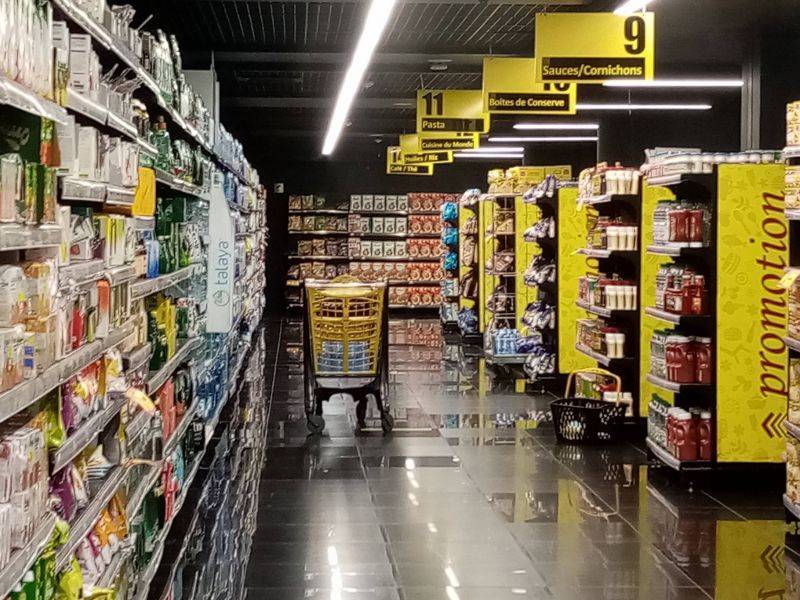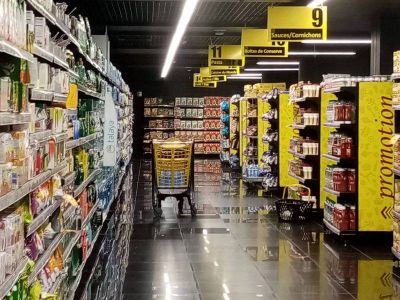
A Lebanese supermarket. (Credit: illustrative photo, M.A./OLJ)
Lebanon is likely to go through a "great food crisis" within two months due to the consequences of the Russian invasion of Ukraine launched on Feb. 24, the president of the union of supermarket owners, Nabil Fahed, warned Saturday, while the country has been suffering since 2019 from an unprecedented economic crisis.
Meanwhile, on Saturday morning, supermarkets formalized a measure that will further complicate the daily lives of consumers: payments by credit card at the checkout will only be accepted for up to 50 percent of the bill, while the rest must be paid in cash. The measure was anticipated in recent days and denounced on social networks, while banks have continued to tighten restrictions on withdrawals, especially in Lebanese pounds, without legal authority.
"In two months, it is likely that we will face a big crisis if we fail to import food, due to the consequences of the war in Ukraine," Fahed warned, in statements to the al-Jadeed TV channel.
"We rely on the good conscience of citizens not to buy and store products more than necessary," he added, while panic was evident in recent days, with many consumers buying large quantities of bread and oil for fear of shortages.
According to a note published by World Bank Vice President for the Middle East and North Africa Region Farid Belhaj, Lebanon imports more than 90 percent of its grain from Ukraine and Russia, and the country has only about a month's worth of reserves.
"Traders are worried about the situation. The spread of accusations against them is unacceptable," Fahed said. "Our goal is to ensure the supply of food on a permanent basis."
'Reluctant' decision
In this context, the union of supermarkets has formalized its decision to accept credit card payments at the checkout only up to 50 percent, asserting in a statement that it was "pushed to take this decision reluctantly, under the pressure of strict measures imposed by the Banque du Liban (BDL)."
Fahed invoked a "lack of liquidity in the market" as an additional reason for this decision. The union said in its statement that it hopes "the monetary situation of the country will be restored as soon as possible, in the interest of all, especially the citizens."
The new restriction is causing outrage, as the chain was one of the last to still accept card payments, in a country where bank withdrawals are already heavily restricted by banks since the start of the economic and financial crisis in 2019. Supermarkets say their bank accounts are also subject to these increasingly restrictive restrictions, which are inflicting even greater losses on them, especially in light of ever-increasing operating costs.
In late 2021, the union had already stepped up to the plate to demand that the industry — and, by extension, its customers — not be penalized by banking restrictions on cash withdrawals and had even met with officials at the BDL to try to find common ground. Similarly, the union also met with the director general of the Economy Ministry, Mohamad Abou Haidar, to facilitate and ensure the continuity of bank card payments. In the end, these efforts were unsuccessful.
This article was originally published in French in L'Orient-Le Jour.
